Over 30 years of anarchist writing from Ireland listed under hundreds of topics
Analysis
1913 Lockout in Dublin & Larkinism - beyond the myths
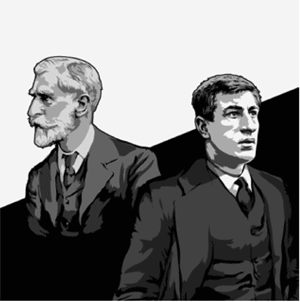 In this article, Donal Ó Fallúin looks briefly at the politics, ideas and misconceptions around the Dublin Lockout of 1913, and shows that the event is much more complex than many have allowed it to be, by attempting to narrow it down to a small event within the nationalist narrative of the period.
In this article, Donal Ó Fallúin looks briefly at the politics, ideas and misconceptions around the Dublin Lockout of 1913, and shows that the event is much more complex than many have allowed it to be, by attempting to narrow it down to a small event within the nationalist narrative of the period.
The 1913 Lockout is a monumental event in the history of the Irish working class. It marks the single greatest confrontation between the forces of labour and capital in Irish history, and the six-month dispute which tore Dublin apart saw a new, militant spirit of trade unionism collide with the force of native capitalism in an unprecedented manner.
Elections: Quicksand for Socialist Ideas
 We don't live in a socialist world. In fact never before has capitalism exercised such total hegemony. Despite huge disaffection with austerity and global capitalism, for billions of people the world over, an alternative is impossible to imagine. One of the key tasks of the left then, is not just to oppose attacks on the living conditions of working class people, but to provide an alternative vision of a society where we do not exist to serve the economy, but rather the economy exists to serve us, a society where the slogan "from each according to their ability, to each according to their needs" becomes a reality.
We don't live in a socialist world. In fact never before has capitalism exercised such total hegemony. Despite huge disaffection with austerity and global capitalism, for billions of people the world over, an alternative is impossible to imagine. One of the key tasks of the left then, is not just to oppose attacks on the living conditions of working class people, but to provide an alternative vision of a society where we do not exist to serve the economy, but rather the economy exists to serve us, a society where the slogan "from each according to their ability, to each according to their needs" becomes a reality.
Why Fracking of the Loch Allen Basin is being opposed
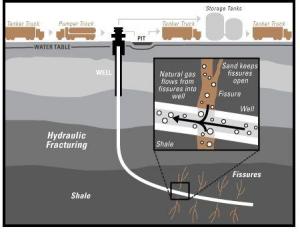 One of the final acts of the last Fianna Fail government was to award licences to a number of companies to explore for commercial gas in the Northwest Carboniferous Basin (more commonly known as the Lough Allen basin). The Lough Allen Basin is a huge area that covers parts of counties Cavan, Donegal, Fermanagh, Leitrim, Mayo, Monaghan, Roscommon, Sligo and Tyrone. It is an area of 8000 square kilometres in total.
One of the final acts of the last Fianna Fail government was to award licences to a number of companies to explore for commercial gas in the Northwest Carboniferous Basin (more commonly known as the Lough Allen basin). The Lough Allen Basin is a huge area that covers parts of counties Cavan, Donegal, Fermanagh, Leitrim, Mayo, Monaghan, Roscommon, Sligo and Tyrone. It is an area of 8000 square kilometres in total.
Take Back The Power! - Our message to ICTU's anti-debt marches 9th Feb '13
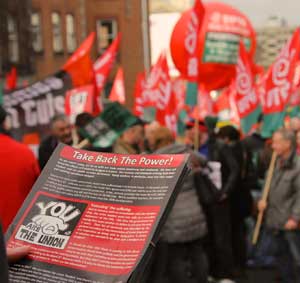 It is time for every one of us to take responsibility for trying to turn things around. We have to stop referring to ‘the union’ as something outside of ourselves and begin to see that our unions are OURS. We have to stop seeing ‘head office’ and ‘the officials’ as anything other than employees of the union - our employees who should be taking their instruction from us. And we have to convince our fellow-workers that there is a benefit to engaging with the union structures and organising to resist.
It is time for every one of us to take responsibility for trying to turn things around. We have to stop referring to ‘the union’ as something outside of ourselves and begin to see that our unions are OURS. We have to stop seeing ‘head office’ and ‘the officials’ as anything other than employees of the union - our employees who should be taking their instruction from us. And we have to convince our fellow-workers that there is a benefit to engaging with the union structures and organising to resist.
Extending The Debt: The Great 'Promnight' Swindle
Sometimes you can walk around this city and feel like you are the last sane person left on the island.  On the front page of every single newspaper the spin doctors have gone into their highest setting possible with the great news that we’ve buried the rotten corpse of Anglo Irish bank which had been stinking up the whole economy for years now. We’d cut ourselves away from this horrible thing, we no longer had to pay out this awful promissory note for a staggering amount of €3.1 billion every year. We were now going to just liquidate the rottenest bank of all time, transfer it over to the men in black (NAMA) and the plan then was to pay interest only on this astronomical debt (€40 Billion) until 2038.
On the front page of every single newspaper the spin doctors have gone into their highest setting possible with the great news that we’ve buried the rotten corpse of Anglo Irish bank which had been stinking up the whole economy for years now. We’d cut ourselves away from this horrible thing, we no longer had to pay out this awful promissory note for a staggering amount of €3.1 billion every year. We were now going to just liquidate the rottenest bank of all time, transfer it over to the men in black (NAMA) and the plan then was to pay interest only on this astronomical debt (€40 Billion) until 2038.
Turn off the Red Light: Should we advocate it?
 “In Turn off the Red Light – Should We Advocate It?”, T.J., explores the problems faced by sex workers in gaining recognition by those who normally fight for workers rights and outlines how criminalisation of demand has created new problems in countries where that has been introduced.
“In Turn off the Red Light – Should We Advocate It?”, T.J., explores the problems faced by sex workers in gaining recognition by those who normally fight for workers rights and outlines how criminalisation of demand has created new problems in countries where that has been introduced.
Sex and Sex Work from an Anarcha-Feminist perspective
 In “Sex and Sex Work from and anarcha-feminist perspective”, Leticia looks at the theoretical background to the debate between those who argue for decriminalisation and those who “see sex work (or even sex in general) as violence against women”. She argues that because sex is commodified, sex workers should be treated in the same way as others who engage in exploitative labour.
In “Sex and Sex Work from and anarcha-feminist perspective”, Leticia looks at the theoretical background to the debate between those who argue for decriminalisation and those who “see sex work (or even sex in general) as violence against women”. She argues that because sex is commodified, sex workers should be treated in the same way as others who engage in exploitative labour.
Authoritarianism and the early Irish State
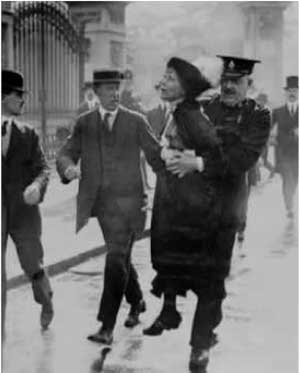 Fin Dwyer looks at the latter years of Ireland’s first post independence government, which having successfully suppressed political opposition and the workers’ movement, went on to “attack women and enforce their moral and ethical values on wider society”. From the clearing of prostitutes from the Monto and the filling of the Magdalene laundries to the institutionalisation of child abuse, he describes how the state’s close association with the Catholic Church played a decisive role in forming attitudes to women and sex that have had a devastating effect on Irish society that can still be felt today.
Fin Dwyer looks at the latter years of Ireland’s first post independence government, which having successfully suppressed political opposition and the workers’ movement, went on to “attack women and enforce their moral and ethical values on wider society”. From the clearing of prostitutes from the Monto and the filling of the Magdalene laundries to the institutionalisation of child abuse, he describes how the state’s close association with the Catholic Church played a decisive role in forming attitudes to women and sex that have had a devastating effect on Irish society that can still be felt today.
Failing to unveil Capitalism at Occupy - Paulo Freire’s Theoretical Framework
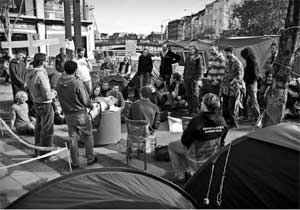 The Occupy movement may have come into our lives just over a year ago with a bang but it went out months later with a whimper. Cathal uses the benefit of hindsight to look at the phenomenon as it manifested itself on these shores and what anarchists could have done to make it work better. The difficulties as Cathal argues did not lie in making arguments for democracy has been the case in so many other campaigns but in that the occupiers “didn’t see this conception extending to the realm of economic production” and in developing the 99%/1% analysis into a deeper class analysis. Recognising problems with current modes of consciousness raising, he utilises Paulo Freire’s pedagogical framework in an attempt to subject “our own political strategies, methodologies and theories to critical scrutiny”.
The Occupy movement may have come into our lives just over a year ago with a bang but it went out months later with a whimper. Cathal uses the benefit of hindsight to look at the phenomenon as it manifested itself on these shores and what anarchists could have done to make it work better. The difficulties as Cathal argues did not lie in making arguments for democracy has been the case in so many other campaigns but in that the occupiers “didn’t see this conception extending to the realm of economic production” and in developing the 99%/1% analysis into a deeper class analysis. Recognising problems with current modes of consciousness raising, he utilises Paulo Freire’s pedagogical framework in an attempt to subject “our own political strategies, methodologies and theories to critical scrutiny”.
Not Waving but Drowning: Precarity and the Working Class

In ‘Not Waving but Drowning: Precarity and the Working Class’, Mark Hoskins takes a critical look at the idea put forward by some academics and even parts of the anti-capitalist movement that the “precariat” is the revolutionary subject of our epoch. After examining the subjective conditions of the precarious subject today and comparing its objective conditions to those of the working class of the last century, he goes on to explore how these conditions relate to our end goal, a communist society and what lessons that can teach us in our attempt to get there.

